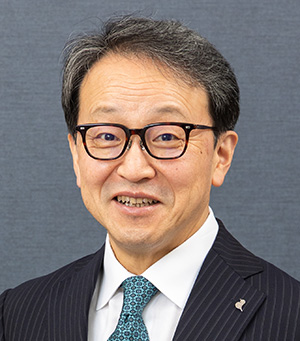Greetings

The 122nd Annual Meeting
Japanese Society of Psychiatry and Neurology
President: MIZUNO Masafumi, M.D., Ph.D.
Director, Asaka Hospital
"Psychiatry in Society, Psychiatry for Society"
122nd Annual Meeting of the Japanese Society of Psychiatry and Neurology
The 122nd Annual Meeting of the Japanese Society of Psychiatry and Neurology will be held over three days from June 18 to 20, 2026, at PACIFICO Yokohama North. As the congress president, I would like to share with you the concept behind this year’s meeting.
Psychiatry has always evolved in close dialogue with society. Recent psychiatric epidemiology has repeatedly demonstrated that social factors—such as war, natural disasters, economic inequality, social isolation, and the rapid digitalization of daily life—have a profound influence on mental health. In response to these societal shifts, the field of psychiatry itself has continued to transform.
Today, psychiatry is not only a discipline that addresses individual pathology; it also plays a vital role in reconnecting people, communities, institutions, and even past and future generations. Psychiatric practice reflects the structure of society and, at times, holds the potential to transform it.
Under the theme “Psychiatry in Society, Psychiatry for Society,” this congress will explore how psychiatry is currently being practiced within society, and how it may help shape future societal change. We are now facing a significant turning point in psychiatry. The traditional diagnostic approach, which focuses primarily on individual pathology, is increasingly insufficient in addressing emerging mental health challenges brought about by the growing complexity of society.
New forms of psychological distress arising from rapidly changing social structures demand that we expand our clinical perspective—from “individual illness” to “relational distress” and “contextual suffering.” For instance, phenomena such as loneliness within digital connectedness, anxiety fueled by excessive self-presentation and craving for approval, fragmented senses of self, and diminished existential grounding are no longer just personal issues. Rather, they are contemporary pathologies emerging through dynamic interactions between individuals and their environments.
To adequately address such complex challenges, we must cultivate clinical imagination and flexible practice that look beyond diagnostic categories to the socio-cultural contexts in which symptoms arise. Promising developments such as user-led research, peer support, and narrative approaches are prompting a reevaluation of the therapeutic relationship and contributing to the reconstruction of psychiatric care.
Furthermore, psychiatry must actively engage with global challenges such as climate change, pandemics, armed conflict, and gender inequality. In addition to their clinical expertise, psychiatrists are now called upon to serve as advocates and policy contributors within society. As interprofessional collaboration becomes increasingly vital, psychiatry must adopt a more inclusive and cooperative stance—one that moves beyond traditional professional boundaries. It is time to foster a new form of “open expertise” that meets the demands of a changing world.
This congress will reconsider the role of psychiatry across diverse fields of practice, including clinical care, research, education, policy, and community engagement. Together, we will listen closely to the voices of those with lived experience of mental illness and seek new ways to promote mental well-being for all members of society.
I sincerely hope this meeting will provide an opportunity for psychiatrists, nurses, psychologists, social workers, occupational therapists, pharmacists, researchers, service users, and those involved in community work and advocacy to come together, rediscover the potential of psychiatry, and take the next step forward—together.
We warmly welcome your participation from across Japan and around the world.
